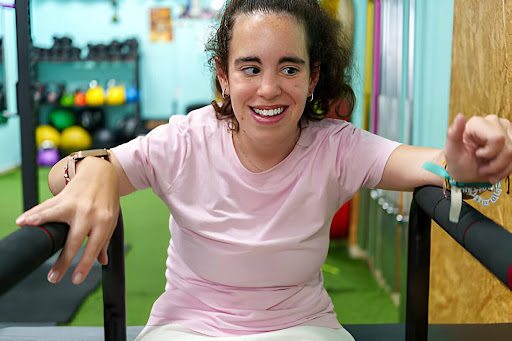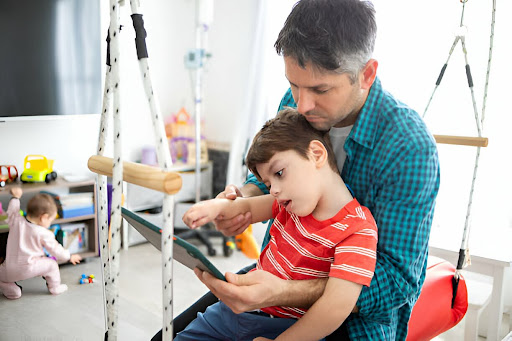Have you ever thought about how the NDIS helps people live their daily lives on their own?
The money given to Improved Daily Living NDIS is one of the most important parts of an NDIS plan. This part of the plan is all about helping people get the practical skills they need to live more independent, productive, and happy lives. The goal of these supports is to give disabled people the confidence and skills they need to take charge of their daily lives, whether that means learning how to cook, taking care of their personal cleanliness, or communicating better.
This blog post will discuss what this group really means and what kinds of support and services are included. It will also give you real-life examples of how the NDIS improves daily living to help you understand how this money works.
What Is Improved Daily Living (NDIS)?
Improved daily living (NDIS) is basically a type of support that helps people build their skills. The goal of this group is to help people learn or improve the daily skills they need to live independently as much as possible. These skills include everything from taking care of yourself to making decisions to talking to other people.
The Core Supports programme assists people with their daily tasks, but the NDIS improved daily living skills programme is all about teaching and training. It usually pays for sessions with allied health workers like psychologists, speech pathologists, physiotherapists, and occupational therapists who help people become independent in the long run.
For instance, this help could help a young adult learn how to plan their day, take care of their personal cleanliness, and connect with others in a healthy way. These supports aren’t one-time things; they’re part of a bigger plan to make life skills better over time.
What Can Improved Daily Living Funding Be Used for in NDIS?
NDIS participants and their families often ask, “What can improved daily living funding be used for in NDIS?” This money can be used to pay for a variety of services provided by related health workers. It has therapy meetings, exercises that help build skills and practical tests. As part of occupational therapy, it can be used to help with personal care tasks.
- Physical training to get stronger and more flexible.
- Seeing a psychologist to help you control your emotions or change the way you behave.
- Speech therapy can help people communicate and get along with others better.
- Use functional ability tests to find out how skilled someone is and keep track of their growth.
In some cases, this money can also be used to teach carers so that the techniques given to the participant can be used at home as well. A participant’s plan must show how these services will help them reach their goals and meet their needs.
NDIS Improved Daily Living Examples in Real Life

To understand how this support works in real life, let’s look at some cases of how the NDIS has improved daily living.
Example 1: Building Morning Routines with Occupational Therapy
A volunteer with Down syndrome is having trouble with getting dressed, brushing their teeth, and making breakfast in the morning. They work with an occupational therapist on a daily basis to break down tasks into parts that are easier to handle, make visual schedules, and practice until the person feels confident and can do it every time. Over time, you can handle this daily routine on your own, which boosts your freedom and self-esteem.
Example 2: Enhancing Communication through Speech Therapy
Through NDIS improved daily living support, a child who is nonverbal and has been identified with autism spectrum disorder gets speech training. The therapist uses picture boards and apps and other forms of augmentative and alternative communication (AAC) to help the person communicate. With practice and guidance, the child learns to talk about their needs and feelings, which makes the parent less angry and allows the child to be more involved in school and social situations.
Example 3: Developing Social Skills and Emotional Regulation
A teenager with ADHD uses their money to see a counsellor who specialises in helping people control their emotions and get along with others. The person who attends these classes learns how to control their anger, read social cues, and make friends, which are all important skills for doing well in school and contributing to the community.
Example 4: Functional Mobility through Physiotherapy
A person with cerebral palsy goes to physiotherapy to get better at walking and keep their joints from getting hurt over time. The doctor makes an exercise plan for the patient to do at home, which is done every day with the help of support providers. Over time, the person gets stronger and more coordinated, which makes them less reliant on movement aids.
Each of these NDIS examples of improved daily living shows how targeted skill development can make a big difference in a person’s life, both in the short and long run.
NDIS Capacity Building Improved Daily Living: Why It Matters
NDIS capacity building Improved daily living is a big part of helping people reach their long-term goals that are written in their plans. It is part of the larger area of capacity building. Core funding makes sure that people get help every day, but capacity building focuses on ensuring people become self-sufficient in the future by equipping them with improved daily living skills (NDIS) and reducing reliance on support workers.
It lets disabled people be in charge of their time, decisions, and actions. The effects of these resources can be seen in every part of life, from home to work to community involvement. This is true whether the person is learning how to cook a simple meal, read a bus schedule, or handle money.
Improved Daily Living Skills NDIS: More Than Just Daily Tasks
The NDIS does more than just teach people how to brush their teeth and fold clothes. Behavioural, social, and cognitive skills are also part of the NDIS services. For instance, a therapist might help a client learn how to make choices, organise their time, or deal with unplanned events. These are the “soft skills” that make it easier for people to live on their own.
It’s also important to remember that these skills often go together. Not only do you need to be able to cook, but you also need to be able to plan, be aware of safety, and have good fine motor skills.
How to Make the Most of Improved Daily Living NDIS
If you want to get the most out of the Improve Daily Living NDIS, your plan needs to include clear, personalised goals. Your planner will be able to better meet your needs if you are clear about what you want to achieve, such as “I want to learn how to manage my medication” or “I want to cook three meals a week on my own.”
Make sure you work with experienced NDIS providers who not only do the work but also keep you up to date on progress, review goals on a regular basis, and change strategies as needed. This makes sure that the improved daily living skills of the NDIS code are being learned and are still useful in the real world.
Also, don’t forget that practice at home is just as important as therapy meetings. Making people use what they learn every day speeds up their progress and helps them remember what they’ve learned.
Conclusion
The NDIS area for Improved Daily Living is more than just a line item in a plan; it’s a way to gain freedom, confidence, and personal success. The supports in this area can help a participant reach their full potential, whether their goal is to learn how to cook, speak, or deal with their feelings more effectively.
Knowing what services are available, how they work, and how to align them with personal goals allows people and their families to make more independent choices about their path to freedom. When you’re making your NDIS plan or going over your supports, make sure you pay special attention to the part about improved daily life. That’s where real growth starts.


No comment yet, add your voice below!